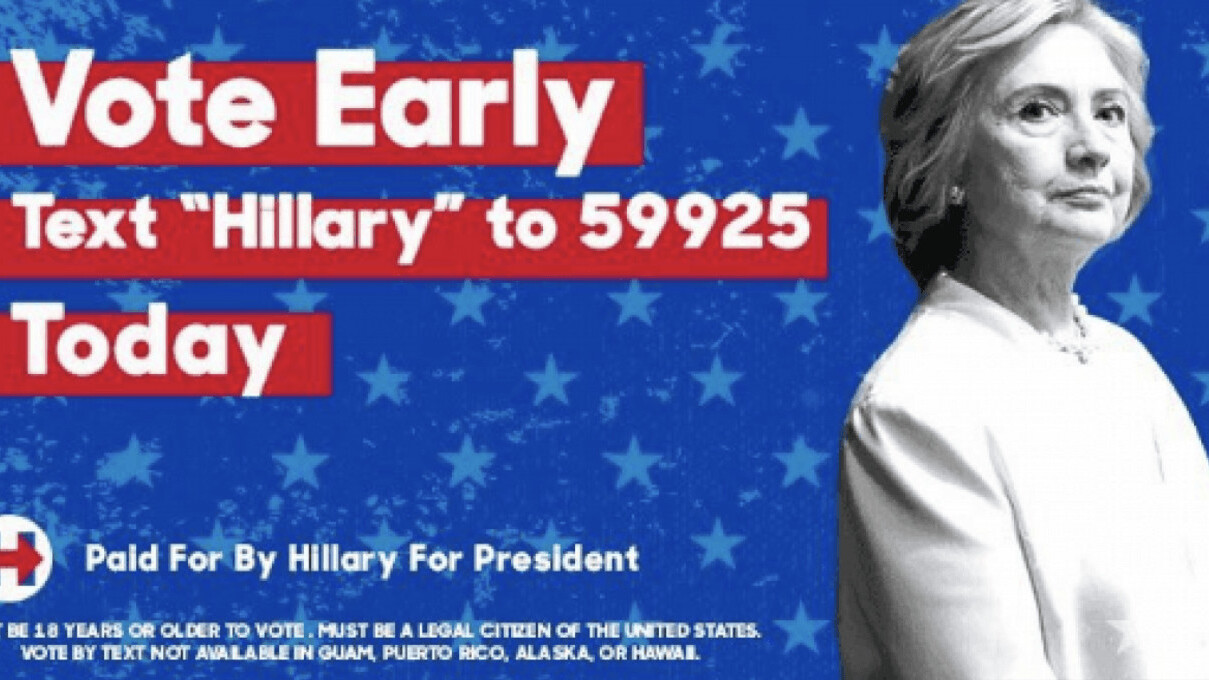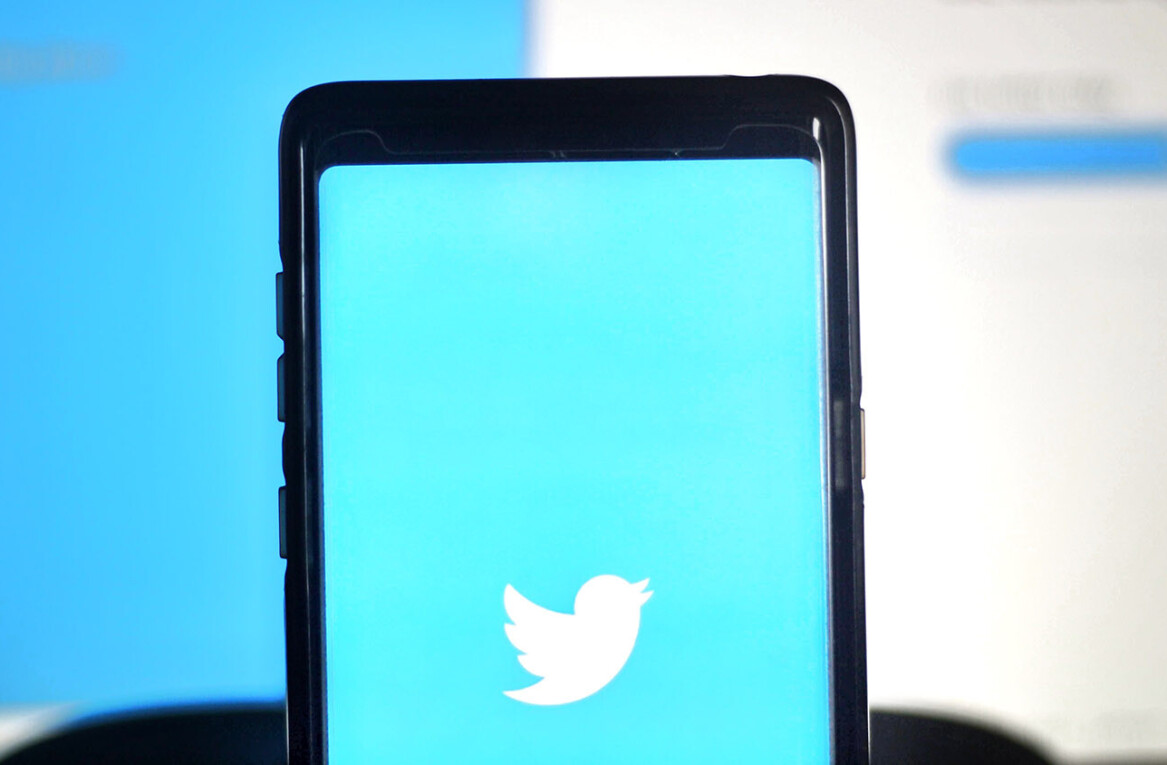
In a race that’s predicted to be anything from close to a landslide victory for Clinton, Trump supporters are pulling out all the stops in the days leading up to the November 8 election.
The new trick, and perhaps the dirtiest of them all, is a new form of voter suppression that appears to target African-American and Hispanic Clinton supporters. The tricksters are paying for ads on Twitter in an attempt to trick the Clinton faithful into voting via text.
I can assure you; that’s not a thing.
Captions like ‘Vote from Home,’ ‘Avoid the Line,’ and the #ImWithHer hashtag adorned the posters and encouraged voters to stay at home this election season and instead reach for their mobile devices by texting ‘Hillary’ to 59925. Sorry folks, this isn’t American Idol.
The ads have since been removed by Twitter but not before the Washington Post managed to snag a few screenshots of ads clearly targeting minority groups like Blacks and Latinos. Historically, both have trended Democrat.


What’s not clear, at least at this point, is who’s paying for the ads. There doesn’t seem to be any evidence to tie it directly the Trump campaign, although those sharing the ads are decidedly pro-Trump.
As for why Twitter allowed the ads in the first place, Twitter initially stated that the ads were allowed because they didn’t violate its terms of service. CEO Jack Dorsey has since responded and reversed course on the initial decision.
And if you’re wondering about the legalities of deliberately misleading voters, it’s not illegal. Rick Hansen, law professor at UC Irvine and editor of the Election Law Blog told Fortune:
There is no law against misinformation or lying at polls. It is possible to argue that providing some misinformation to voters could be seen as voter intimidation and therefore a violation of the Voting Rights Act and other federal (and state) laws. But I don’t think that would apply to these ads.
Welcome to 2016, where everything is made up and the points don’t matter.
Get the TNW newsletter
Get the most important tech news in your inbox each week.




